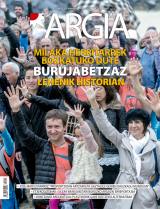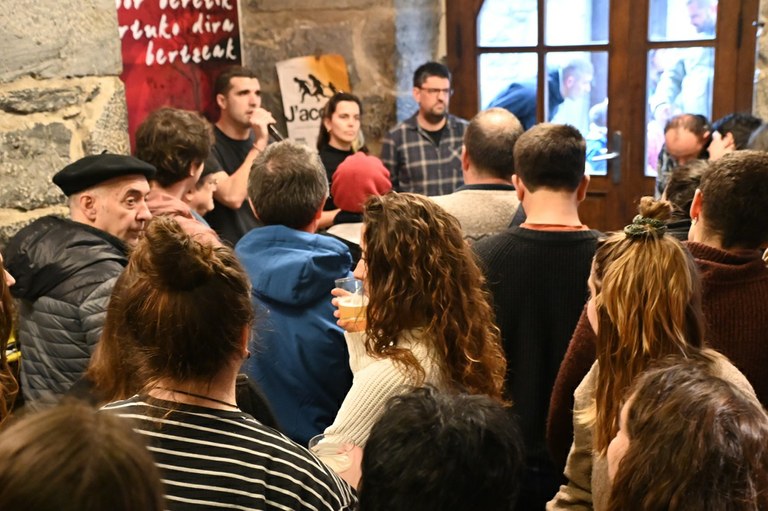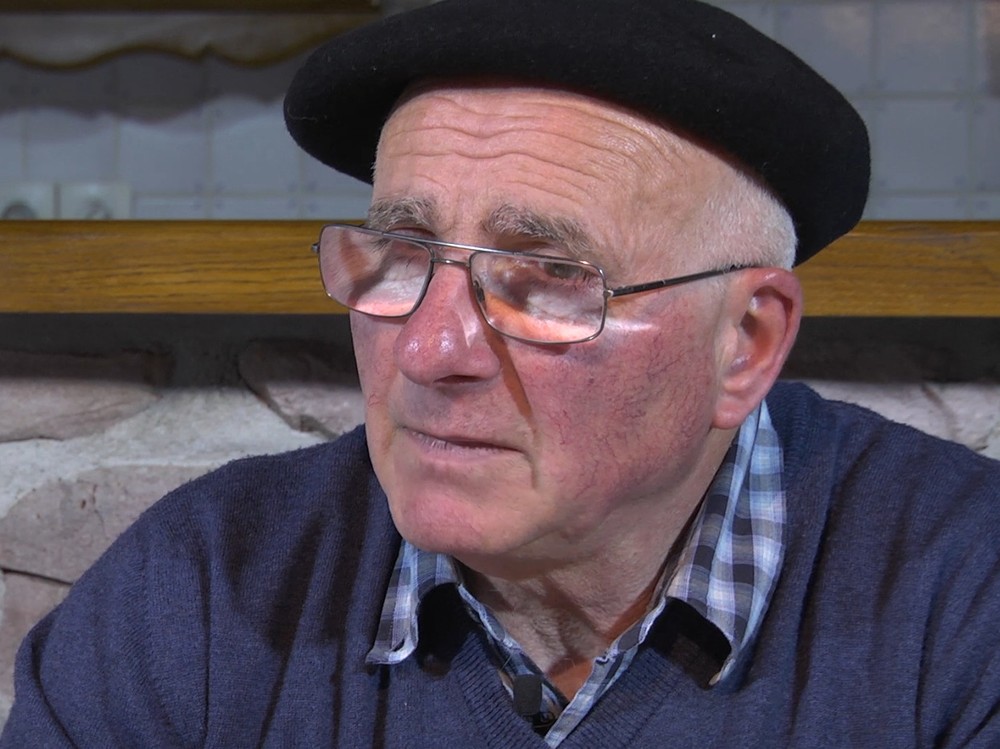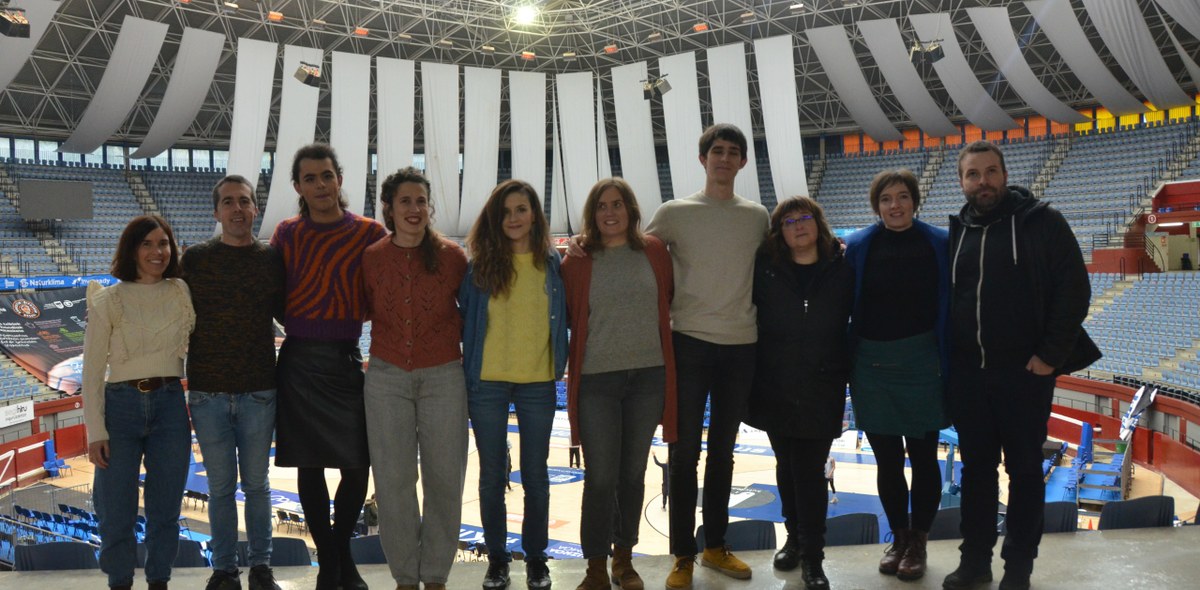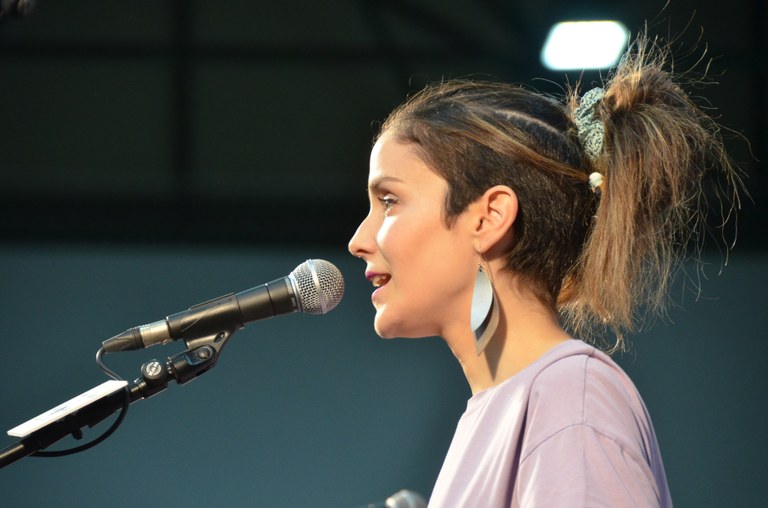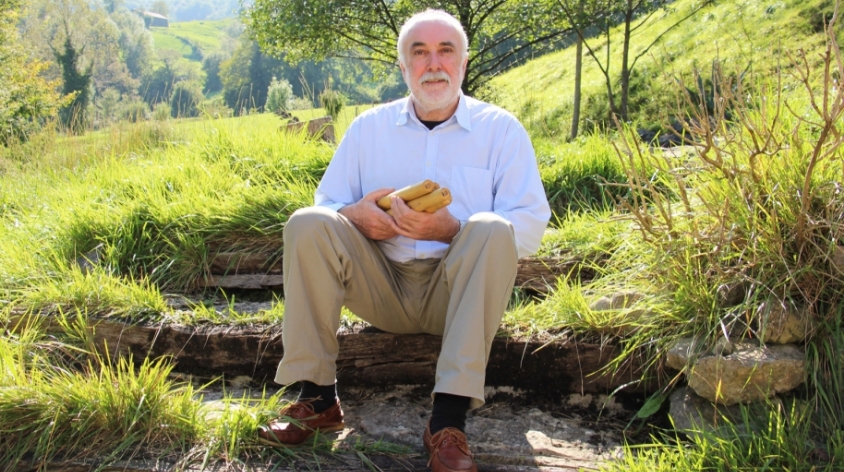Banquets to eat hungry
- In Euskal Herria, as we know, it has been preferred to meet around the table. Men, of course. Children later on and women ate in the kitchen or in the hallway. It's pretty impressive how Bertsolaris ironiously reflected, with bitter humor, the fantastic meals and dinners that were organized in the dwellings or in the inns. They followed the path of Martin-Koxe de Irurita: to eat well, to drink well, to satiate…
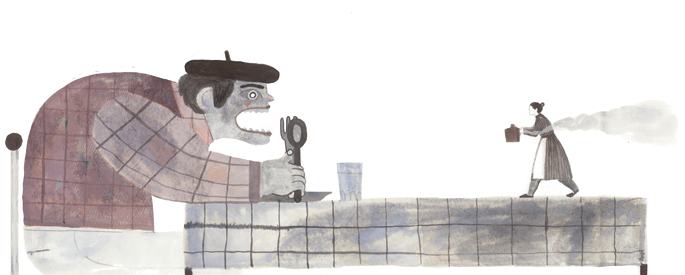
Contemporary trovadores Etxahun and Otxalde, Betiri Santz - the nickname of hunger - left a couple of emblematic bars of Euskal Herria with a caress in the stomach. And in addition, they were mistreated. The people of Ezpeleta (Otxalde) and the Great Gaztalondo (Etxahun) counted their vices in pieces with the aim of encouraging people. But deep down, they're famed nonsense.
Etxahun (1786-1862) and Otxalde (1814-1897) were spectacular. They had great success in Iparralde, one in Lapurdi, another in Zuberoa, offering bertsos, on paper and sung suddenly. They participated in the Flower Games of Urruña. In addition, he was an anticlerical Otxalde. When, stimulated by bad reputation, they approached dark restaurants and Lozanos, the ladies in the house were able to fire the hard animals as soon as possible. The two cocks met each other one time.
Do you
know Etxahun de Barkoxe?
He tells me
he's not a trovator
like that... I'm going to
visit if I wasn't that far.
Sir, you meet me
at Etxahun Barkoxe:In
Egün they
traveled hüllanti.
The melancholic of Etxahun has been known especially since 1969 when the Basque Country Jean Haritschelhar analyzed in depth the works of the Bardo of Barkoxe and translated them into Spanish. The inhabitants were already preparing pastors, hated them both by the preferred child and by the influx of the various regions.
In the verses of Pierra Topet we see the man agitated by life, but he had the tongue, the neck and the edge. If they had rejected him, every one who had done him harm, man, priest, woman, girl, had been condemned forever by rude reverences. They gave him away from home and took a daily walker, who was truly glorified with the pastors of Pixta or Olha de Ünürritz. He was a real Salbai when he came down to the town...
In the Great Gaztalondo the irony and grudge of bertsolari are born in a heroic poem, like a shining sword:
I've
stayed
in the
great gaztalondo, I've become a priest.
It seemed to me
that I
had lunch
with me, and my khümiter was rich.
Barkoxe is an extensive town, with many famous neighborhoods that some still speak of memory: Txapela, Larraja, Gaztalondo, Oilauki, Haranbeltz and Karrika. The house of the Etxahun was located on the slopes of Monte Madalena. Today it is farmers, as before. The poet recognized, therefore, that the general was generous when he liked the stranger he was going to eat. On many occasions, Miguel Strogoff received her with great greed.
He immediately wrote four verses. Six variants have been found over time. When he sang to his sister, he denounced that Arangarai's dog bitten him. He entangled the situation with hilarity, increasing the laughter in the spirit of the listener, who was poor and received: corn bread, mestura, unsalted broth, cold middle lands, dirty straws, and at the end, the most sin, wine, envy:
…
Soups nütin
Maize broth ahül
gatxotx godalia
cold and
silk hazelnut, field of two needle skates.
…
Zieta nin
sakho, gathülia
manddo,
wooden kullera,
tahalla beltza eta xatar para lunjera.
In Etxahu, we imagined it as a constant hunger. As he entered the restaurants, especially in his neighborhood of Gaztalondo, he competed, however, for atrocities. The reality was that on the taverns, on the Tebetan shelves, on the width of the table, a kind of struggle was played without anyone denouncing a word. Although he said and saved, the relationship between what appears in the Great Gaztalondo makes at least the pearl of the verse section essential.
Otxalde de Bidarrai, like Etxahun, because he was a border guard, was not an officer of the rich. They made people walk after people and had eleven children who grew up with their low salary as a civil servant. He went to Argentina with his wife and children, but he returned soon, leaving his wife and some children. Bidarrai was buried without mass because it was red ideologies. At the Fairs of Pamplona/Iruña, he is the breeder of the song by the author Makila or Kilo.
J.D.J. The Sallaberry Priest gathered Otxalde in 1870 in the seven Coplas of the People of Ezpeleta, repeating what happened in Etxahuni in Zuberoa as a miracle game: although the promised did not seem to have actually given him or in Lapurdi zola. He sings Peio Ospital, who is occasionally asked to act in public.
We observe in both verses the misogynistic tendency of men and of passing through the roads and mountains, of these ruined poets: their wives did not like, in Gaztalondo or in Ezpeleta, they attributed falsehood, pride, laziness, vocation of social exclusion. Let us not forget that in Etxahun he complained about the whole world. The light was softer:
I have
spent in Ezpeleta, in a hostel I have spent
a meal, without believing,
in four people; Etxek’anderia
in his works, many
pargatas in his sauces, then you will see in the works…
Of course, as lunch progresses, there is nothing the size of what has been announced. Ezpeleta's restaurant owner rose early, set on fire and bought meat. Everything was going well. When they ate, the truth was broken:
He gave me a little bit of cognac, he
didn't see anything that was going on, not
even a little bit of meat, a big bone.
Wine was not a real wine:
We drink willingly, out
of fear of drunkenness, that
will not turn our heads.
What about salsa?
A freshly made soft sauce, a
rabbit, started to hurt.
He wasn't satisfied with the meats.
I laughed at myself, laughed
at the castrate's bad fame; I
was lean, but I didn't joke.
Coffee was finally water, half a cup of whispers, maybe with coal. The verses are made so that the observers are banished with laughter and Otxalde managed to stay in the line of the mockery and the truffle, without any sign of the painful hatred that Etxahun attacks in the Great Gaztalondo.
The bertsos of Etxahun and Otxalde show us that dinners and meals were often nothing but a dream. Throughout history, the hungry were long, morbid years, in which people died millions of people and, according to testimonies, in the way animals were condemned to eat grass. It seems that in the Basque Country the age of the hungry ended the era of the exploitation of America. From there came corn, which is obvious, marzipan, tomato, pepper and chocolate.
Then they were planted, grew and used in the kitchen: in childhood with corn, we also eat stems, mesturas, caldos, sauces or pastels. The food was prudent, but satiating. As to suppress the influences of the hungry, the reports of gigantic meals were disseminated in the crowds, which were sometimes taken from Carnival. To forget the famine one could taste the funny utopia of the novel Gargantua, published in 1534 by François Rabelais.
In Etxahun and Otxalde, there are already piojosas, scholars and empty casings. But the testimony of an unknown bertsolari can remind us that being mistreated in bars was not a law. I live in the world in which there is no lack of food, but the lover’s beloved: there was no lack of what he loved… he confesses to us in a lama.
We are told by a copist from the Barkoxe district and the menu he talks to us seems not powerful by his mouth on those occasions:
I was in
the house of the broth
of
Barkoxe, I certainly
ate Ahuñaki because
the ribs
had to
be roasted, the lungs cooked, the mufle bread, the sweet wine…
Take advantage of it.
Vagina Shadow(iko)
Group: The Mud Flowers.
The actors: Araitz Katarain, Janire Arrizabalaga and Izaro Bilbao.
Directed by: by Iraitz Lizarraga.
When: February 2nd.
In which: In the Usurbil Fire Room.
In recent years, I have made little progress. I have said it many times, I know, but just in case. Today I attended a bertsos session. “I wish you a lot.” Yes, that is why I have warned that I leave little, I assume that you are attending many cultural events, and that you... [+]







